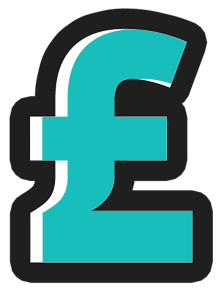

We help children and young people with attention difficulties, including attention deficit hyperactivity disorder (ADHD).

An executive function assessment identifies areas of strengths and difficulties which brings the following benefits:
Through a comprehensive understanding of needs, adaptations and support strategies can be put in place to help children and young people to be happy, safe and ready for life’s challenges.
An executive function assessment can be carried out following an initial discussion, please see our process below.
During an executive function assessment, a child or young person would complete a number of puzzles or tasks whilst talking about their learning. The executive function assessment will take place in a room with reduced distractions, meaning that we should be able to gain an accurate representation of executive function.
The specific executive function assessments used will be chosen based on the child or young person and their needs. The main executive function assessments we use are:
There may be alternative assessments and methods to assess executive function and these will be discussed before the assessment takes place if necessary.
Following an executive function assessment we will be able to provide detailed information about a child or young person’s executive functioning. This information will include areas of strengths and difficulties, which can be used to support with learning. We provide follow up services to offer constructive support.
We offer a variety of reports for an executive function assessment. A bespoke report is available which can vary based on length or purpose. Read more about the types of reports we can provide.
Executive functioning can impact a broad range of areas which is why an accurate assessment can help to identify areas of strength and difficulties. Understanding these areas can help to put structured support into place to help children and young people to become happy, safe and ready for life’s challenges. To arrange an initial discussion or to find out more please contact us.
Arrange an initial discussion to find out how we can benefit your education setting. The initial discussion lasts 2 hours and is a starting point to identify needs. The cost is £260.
only
£260


Once again thank you for all your help and for actually listening to me when others wouldn’t.

Jodie (Parent)
Thank you Julie once again for the excellent report, it captured the child’s needs entirely - SENDIASS, parents and me commented on how well written it was. Many thanks for your continued assistance.

SENCO
Sarah Ward was brilliant with us. Really happy with the help and support, would recommend.

Joanne (Parent)
I think the work you have been doing has been great to help break the stigma of mental health and as a fellow sufferer I know how important that is.

Mental health professional
Many thanks for Sarah W’s hard work with our students which has been very well received.

Deputy Head
Really enjoyed it and learnt lots that I can take back to school. Thank you for the quality experience.

Sarah Tindal
Thank you Julie once again for the excellent report, it captured the child’s needs entirely - SENDIASS, parents and me commented on how well written it was. Many thanks for your continued assistance.

SENCO

We provide bespoke solutions to suit all budgets and requirements for children and young people aged 0-25 in homes, education settings and the community. Our clinical, educational and child psychology services are cost effective.
To make a referral and arrange an initial discussion please complete our referral form.

Ready to get started? The next step is to speak to our team to find out more about the services we provide and how we can help. Call us on 0161 820 9229 or email office@hsrpsychology.co.uk